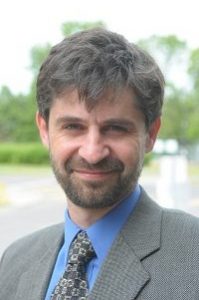Eric Helleiner
MSc Politics of the World Economy (1987), PhD International Relations (1991)
Dr Helleiner is currently Professor and Faculty of Arts Chair in International Political Economy, Department of Political Science, University of Waterloo and Balsillie School of International Affairs. Webpage.
Studying at the LSE was quite a transformative experience intellectually for me. As an undergraduate student in Canada, I had taken courses in both international relations and economics, but had not really explored how they interrelated in any systematic way. I arrived at the LSE to pursue a Masters degree in Economics in September 1986, but quickly discovered that there was a new MSc program in “Politics of World Economy” (PWE) that analyzed this very relationship. After consulting with some LSE faculty – one of whom warned me that the field of international political economy (IPE) might not last – I was allowed to transfer programs. This was one of the best decisions I ever made.
In the PWE program, I found an extremely vibrant and open intellectual environment that perfectly matched my interests. Susan Strange had played a leading role in establishing the program a few years earlier and her commitment to interdisciplinary and eclecticism infused the curriculum. Other scholars such as Gautam Sen, James Mayall and Michael Hodges also contributed enormously to my education at both the MSc and PhD level. By hosting one of the world’s first stand-alone IPE programs at the graduate level at the time, the LSE’s Department of International Relations played a major role in enabling this field to flourish in the 1980s and after.
Since graduating from the LSE, I have tried to assist the growth of IPE as a field in my own small ways through writing and teaching. My two recent books draw particularly on interests that were first cultivated for me at the LSE. Forgotten Foundations of Bretton Woods (Cornell 2014) is designed to provide a new perspective on the Bretton Woods conference, a conference I first studied extensively in my MSc year at the LSE. Drawing on many years of archival work, the book shows how international development issues and Southern countries played a much more significant role in the Bretton Woods negotiations that has generally been recognized. The second book, The Status Quo Crisis (Oxford 2014), explores why reforms to global financial governance after the 2008 global financial crisis have been so much more limited than many people anticipated. The book address a topic – global financial reform – that I first became interested in when reading Susan Strange’s 1986 book Casino Capitalism. In these ways, I hope to be contributing to a field that I discovered, and learned so much from, at the LSE.






